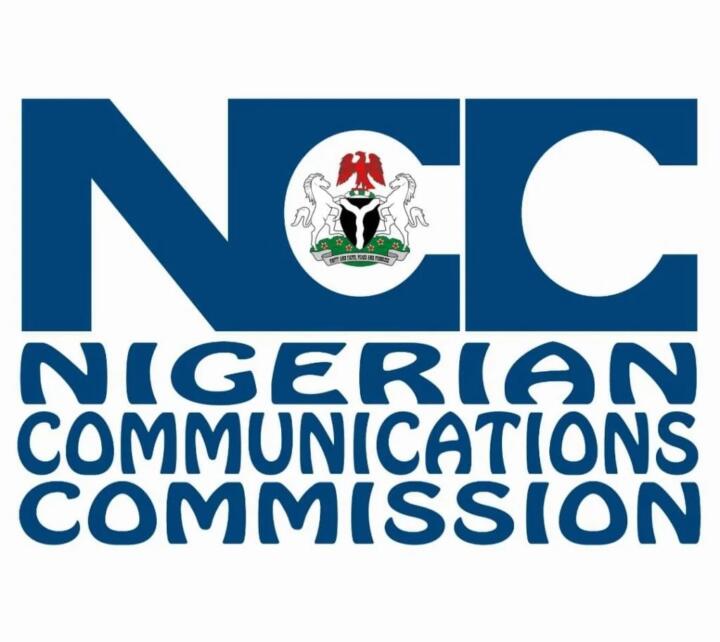The Nigerian Communications Commission (NCC) has announced the disconnection of unregistered and improperly registered Subscriber Identification Module (SIM) cards from the nation’s telecoms networks, in a move aimed at bolstering national security, improving service integrity, and safeguarding citizens against criminal exploitation of mobile lines.
The decision, which follows several warnings and deadlines issued by the regulator, is part of ongoing efforts to ensure full compliance with SIM registration guidelines and the mandatory linkage of National Identification Numbers (NIN) to mobile lines. The NCC emphasized that the action is in line with government policy to secure Nigeria’s digital space and to protect millions of telecom subscribers from fraud, cybercrime, and other illicit activities.

Executive Vice Chairman of NCC, Dr. Aminu Maida, stated that the move underscores the Commission’s resolve to enforce strict adherence to SIM registration rules by telecom operators. He explained that allowing unregistered SIMs to remain active posed significant risks, as such lines could be used by criminals for identity theft, kidnapping, extortion, and terrorism-related activities without traceability.
Maida said, “Every SIM card in Nigeria must be properly registered and linked to the rightful owner through the NIN-SIM linkage framework. This is not only a regulatory requirement but also a security imperative. The disconnection of unregistered SIMs is a decisive step to safeguard our citizens and ensure that our telecom infrastructure is not used to perpetrate crime.”
According to NCC, the exercise involved collaboration with all major network operators, who were mandated to verify their subscriber records and immediately deactivate numbers without valid registration. The Commission also noted that while the measure may cause temporary inconvenience to affected subscribers, the long-term benefits outweigh the disruptions.
Telecom operators confirmed that they have complied with the directive and disconnected non-compliant SIMs. They, however, assured customers that they can still regularize their registration by visiting service centers to provide accurate biometric and identification details before their numbers are restored.
Industry stakeholders have applauded the move, describing it as timely given the rising cases of digital fraud, mobile-related crimes, and insecurity. The Association of Licensed Telecommunications Operators of Nigeria (ALTON) stated that cleaning up the subscriber database would enhance trust in the industry, support law enforcement agencies in investigations, and create a more reliable environment for digital services.
However, some consumer advocacy groups have called for more public awareness campaigns to ensure that subscribers fully understand the importance of SIM registration and the processes involved. They argued that rural dwellers and low-income Nigerians without access to proper documentation might be disproportionately affected by the exercise.
In response, NCC said it was working with the National Identity Management Commission (NIMC) and other stakeholders to make the NIN registration process more accessible, especially in underserved areas. The Commission stressed that no eligible Nigerian would be permanently cut off from telecom services, provided they comply with registration requirements.
Data from the NCC indicates that Nigeria has over 220 million active mobile subscribers, making the telecom industry one of the largest in Africa. With the sector contributing more than 14 percent to the country’s Gross Domestic Product (GDP), ensuring the credibility of subscriber records is seen as critical to sustaining growth in mobile banking, fintech, e-commerce, and other digital services.
Security experts also note that the disconnection of unregistered SIMs could significantly reduce the anonymity exploited by cybercriminals. They argue that proper SIM registration will enhance digital forensics, making it easier for security agencies to track down criminals who use mobile platforms to defraud unsuspecting citizens.
Furthermore, analysts say the measure aligns Nigeria with global best practices in telecom regulation. Many countries have introduced strict Know Your Customer (KYC) requirements for mobile subscribers, linking telecom services to national identity databases to curb fraud, money laundering, and terrorism financing.
The NCC reiterated that compliance monitoring would be continuous and that any telecom operator found to be in violation of SIM registration guidelines would face sanctions, including fines and operational penalties.
Looking ahead, experts suggest that the next phase of Nigeria’s digital security strategy should focus on leveraging artificial intelligence and advanced analytics to monitor suspicious activities across mobile networks. They also advise integrating SIM registration with broader initiatives such as the digital ID system and the cashless economy to create a holistic approach to national security.
For now, the disconnection of unregistered SIMs sends a clear signal that Nigeria is committed to cleaning up its telecom ecosystem. While subscribers who failed to regularize their lines may face temporary disruptions, the overarching goal remains to strengthen national security, improve digital trust, and secure Nigeria’s rapidly expanding telecommunications industry.
As the exercise progresses, NCC has encouraged Nigerians to check their SIM registration status and ensure full compliance to avoid disconnection. The Commission added that it will continue to engage with the public to clarify the process and provide support to vulnerable groups who may struggle to meet the requirements.
By enforcing this policy, the regulator believes Nigeria is on track to create a safer, more reliable, and globally competitive telecom sector that supports economic growth and innovation while protecting citizens from exploitation.
Support InfoStride News' Credible Journalism: Only credible journalism can guarantee a fair, accountable and transparent society, including democracy and government. It involves a lot of efforts and money. We need your support. Click here to Donate
